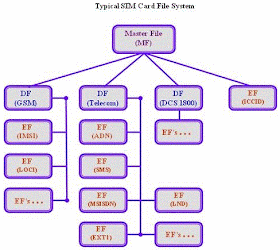Recently I faced question about role of Bootstrapping Server Function (BSF) function in the LTE network, this made me thinking and digging. On the end I decided to share this woit you in case anyone has ever wondered about that. So what is the role of BSF in LTE?
The BSF queries the Subscriber Locator Function (SLF) over Dz interface, which is Diameter based, to get the name of the HSS containing the required subscriber specific data.
It's similar to Zh or Zh' (Z-h-prim), dont remember it right now, interface used by BSF to connect to HLR to fetch authentication information.
Check the 3GPP 33.220 for more details http://www.3gpp.org/ftp/specs/archive/33_series/33.220/
The BSF queries the Subscriber Locator Function (SLF) over Dz interface, which is Diameter based, to get the name of the HSS containing the required subscriber specific data.
It's similar to Zh or Zh' (Z-h-prim), dont remember it right now, interface used by BSF to connect to HLR to fetch authentication information.
Check the 3GPP 33.220 for more details http://www.3gpp.org/ftp/specs/archive/33_series/33.220/
